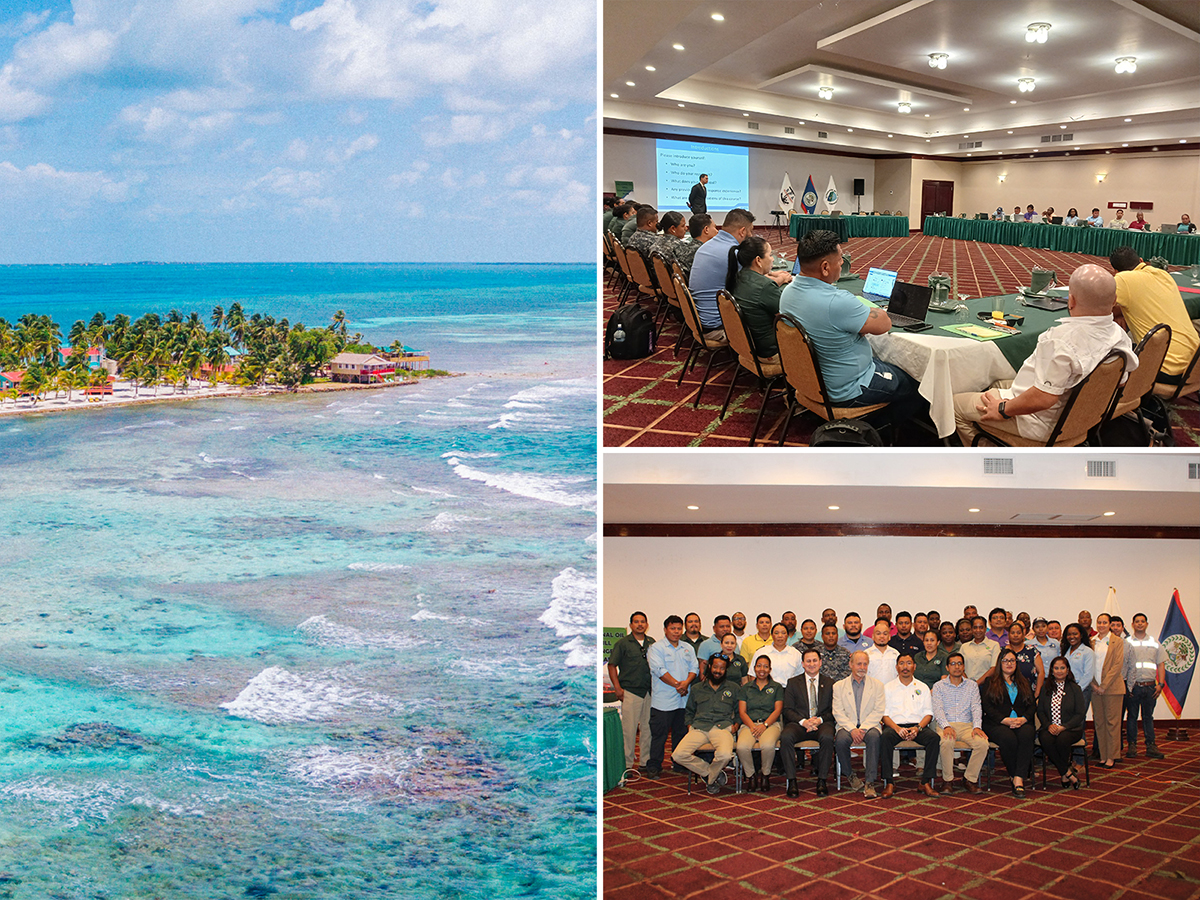Oil spill preparedness training is underway at a national workshop in Belmopan, Belize (12-15 March), to help build capacity within the Belize government to deal with any potential oil spill incidents.
The workshop brings together 48 participants to discuss the impacts of oil pollution and its effect on the marine environment, the need for rapid decision-making, and the interface between national groups/agencies with other countries and the international community.
Key topics covered via a series of lectures and case studies, include:
· an overview of response strategies and techniques
· fates and effect of oil spilled in the marine environment
· response management and structures
· roles and responsibilities
· international co-operation
· regulations and conventions
· liability and compensation.
Participants should leave with a clear understanding of the roles and responsibilities that should be addressed prior to, and during, an oil spill and potential strategies for undertaking an effective, efficient and safe clean-up operation. Emphasis is placed on effective collaboration among numerous stakeholders, with participants being given the opportunity to build their networks and foster a cooperative approach to oil spill preparedness and response.
The activity is being delivered by a team from the Regional Marine Pollution Emergency, Information and Training Centre-Caribe (RAC/REMPEITC-Caribe) and an international expert, through IMO's Integrated Technical Cooperation Programme (ITCP), in collaboration with the Department of the Environment of Belize and Belize Port Authority.
More about RAC/REMPEITC-Caribe:
The centre assists countries to implement international conventions aimed at reducing pollution from ships. It is hosted by the Government of Curaçao and is involved with activities largely funded by IMO, UNEP and the United Nations Development Program (UNDP).
